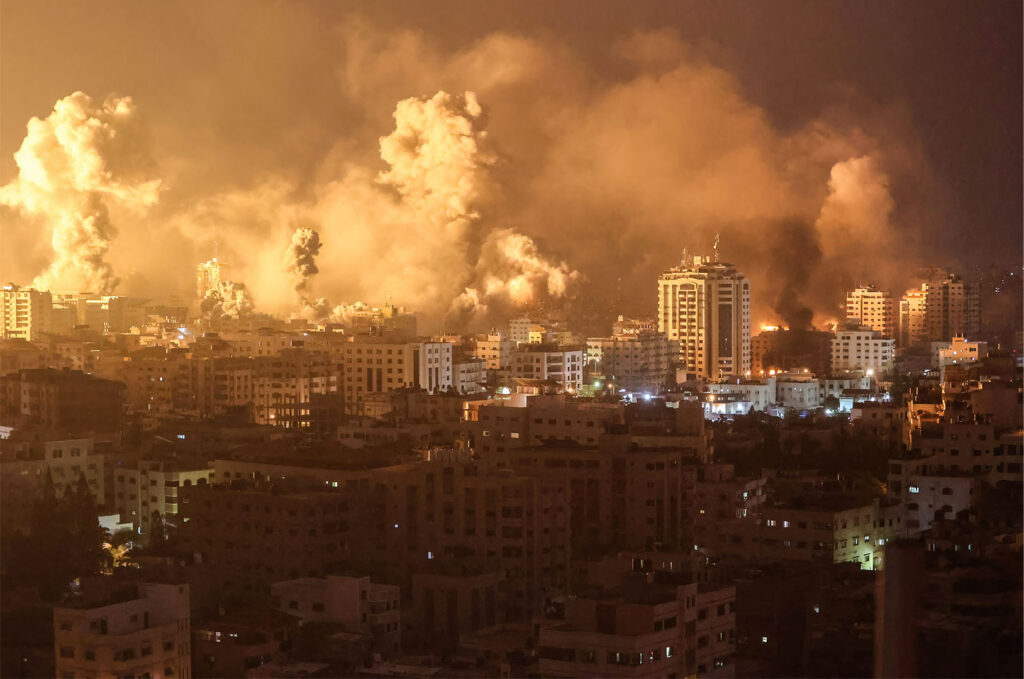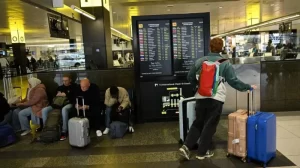
the prospect of Israeli forces launching an attack into Gaza’s dense urban neighborhoods, wherein militants use civilians as human shields, brings returned searing memories of the lethal battles the U.S.-led coalition fought towards the Islamic country organization in Iraq and Syria.
For U.S. protection Secretary Lloyd Austin and his army leaders, that intense combat and the hundreds of civilians killed in airstrikes and neighborhood gunfights in Mosul and Raqqa are instructions to be shared as Israel prepares for a likely ground invasion in opposition to Hamas.
“In our conversations with the Israelis, and as we’ve made very clear, we’re persevering with to highlight, the importance of mitigating civilian casualties and ensuring that … things like safety corridors are concept through,” Brig. Gen. Pat Ryder, the Pentagon spokesman, said Tuesday.
The U.S. can paint a vibrant photograph of civilian slaughter. at some stage in the 8-month siege to liberate Mosul from Islamic insurgents, as many as 10,000 people were killed, along with at least 3,200 civilians from airstrikes, artillery hearth or mortar rounds between October 2016 and the autumn of the Islamic state organization in July 2017, consistent with an associated Press research. approximately the equal number of civilians have been killed or taken hostage by militants and used as human shields as they fled the metropolis.
Austin, Gen. CQ Brown, chairman of the Joint Chiefs of staff, Gen. Eric Kurilla, head of U.S. significant Command, and different senior army commanders all frolicked in the place around then and watched the violence spread. They had been keenly aware of efforts to set up humanitarian corridors and selections to pause operations even as civilians have been warned to move away. in order they are speakme to their Israeli opposite numbers on an nearly every day basis, they may be sharing recommendation at the challenges of city war, the threats of booby traps and roadside bombs and the pressure to shield the harmless at the same time as rooting out insurgents hidden in schools, mosques and houses.
“Sharing our 20 years of instructions discovered is happening up and down the chain,” said military Capt. Jereal Dorsey, the spokesman for Brown.
Underscoring that precedence, the U.S. has despatched a group of navy advisers to Israel, consisting of Marine Corps Lt. Gen. James Glynn, who helped lead unique operations forces in opposition to the Islamic state organization. Glynn, who also served in Fallujah in the course of some of the most heated city fight there at the height of the Iraq war, will be capable of advocate the Israelis on how to mitigate civilian casualties in urban warfare.
“those officers, to encompass Gen. Glynn, have enjoy in terms of urban combat,” Ryder instructed reporters Tuesday. “They’re in there briefly with their navy expertise to just undergo and speak some of the difficult questions that the IDF have to do not forget as they plan diverse eventualities.”
In discussions ultimate week with Israeli defense and authorities leaders in Tel Aviv, Austin recalled his reports heading U.S. relevant Command in the course of the primary two years of the campaign to defeat the Islamic state institution. He pointed out training found out, together with the realization that the sector is watching, officers acquainted with the talks said.
Austin became blunt both publicly and privately that as Israelis plan their military operations, which include any ground assault into Gaza, they ought to take into account the protection of civilians.
“There are some lessons learned that we will be extra than glad to percentage with our allies here in terms of operating effectively in dense urban terrain, developing safe humanitarian corridors, making sure that we’re considerate about how we shape the war and ensuring that our targets are properly described,” Austin instructed journalists.
A RAND document released ultimate yr located that whilst the U.S. emphasized the need to limit civilian harm inside the devastating 2017 siege to liberate Raqqa, Syria, there were heaps of casualties. It recommended that the U.S. navy regulate its making plans, schooling, concentrated on and use of guns a good way to better keep away from big civilian deaths and harm.
Retired army Gen. Joseph Votel, who took over U.S. vital Command in 2016 whilst Austin retired and oversaw the operations, said the most vital message for the Israelis — which has been added by way of Austin, Secretary of country Antony Blinken and President Joe Biden — is that it’s now not what Israel does in its pledge to ruin Hamas, however how the army does it.
“the way you orchestrate this marketing campaign in reality topics,” stated Votel. “and that they need to try this in a way that reflects values and the concern for innocent Palestinians who themselves are being held hostage via Hamas.”
He added that there are numerous similarities and some key variations between the ones missions and a capacity attack into Gaza. Hamas, he stated, is higher armed, with extra state-of-the-art explosives and other weapons provided through Iran. And the labyrinth of tunnels beneath Gaza is a long way more developed and lengthy than the ones visible in Raqqa.
Militarily, he stated, Israel is seeing a greater sophisticated and better armed opponent than the Islamic nation changed into in Syria and Iraq.
“There’s a difference among being dug in, going to ground and what we’re seeing in Gaza, that’s an underground structure that connects specific components of Gaza and lets in human beings to transport supplies, humans and different matters, and enhance essential capabilities underground,” stated Votel. “I don’t suppose ISIS were given to that precise level of sophistication.”
He stated the U.S. and coalition allies had greater time to put together for the struggle to retake Mosul. And he said that because the coalition moved down the Euphrates River, it stopped and paused operations some of times in an effort to meet with local tribal leaders and try to get innocent civilians out of the line of fireplace.
The brutality of it all is some other element Austin remembers, in addition to the need to forestall militants at the same time as they are embedded deeply into city civilian regions.
“In countering ISIS I felt as if we were staring evil in the eye,” Austin stated. “It become without a doubt evil. And what we’ve visible from Hamas, it takes that evil to some other stage. And so that’s the primary aspect that we want to keep in mind and remember.”





